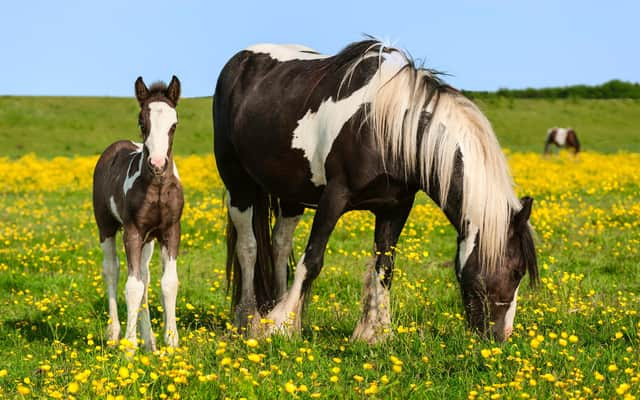Don’t fall foul of the law with equestrian use on agricultural land


Charlotte Boyes, solicitor in the agriculture team at Wilkin Chapman explains:
“If you wish to use some of your agricultural land for equestrian purposes then you need to be aware of current planning legislation, in particular the Town and Country Planning Act 1990 (TCPA), which may affect your property.
“Whilst many may think that horses are included within “agriculture” and so do not need planning permission, there are important distinctions to make depending on the use of the land and the use of the horses. If the horses are simply grazing on the land, they will likely fall within the legal definition of “agriculture” and you will not need to obtain planning permission for them.”


“However, if you want to keep your horses for other purposes, such as recreational riding, you may well need planning permission. The consequences of a planning breach can include enforcement action, so it is important to make the distinction.”
“There is a fine line between horses which are grazing the land and those being kept for other purposes. The courts have considered the issue on different occasions, but there are still no clear rules and each case will be decided on its facts.”
What is considered agricultural when it comes to horses?
Some of the factors the local authority may consider when determining whether a breach has occurred include:
Where the horses are being exercised in the field: the use of the land may not be considered agricultural.
If grazing is secondary and instead the horses are being given significant amounts of hard feed.
If there are any structures related to the horses’ use such as a ménage or jumps, this would likely show they are kept there for leisure rather than agricultural purposes.
Whether the land is used just for horses or are other animals, such as sheep, also grazing the land which will imply that it is agricultural.
“Consideration also needs to be given to agricultural buildings which generally enjoy permitted development rights,” explains Charlotte. “This means they can often be erected without the need for additional planning permission (however it is important to check before proceeding). Buildings and other structures connected with recreational horses are not agricultural and will not fall under such exemptions. As such, any new structures must not be permanent, so they must be capable of being moved around the field and must not remain in the same position. Neither must they represent a change of use of the field from agriculture to equestrian.”
Introducing horses onto your land can prove troublesome. It is worth seeking legal advice before doing so to make sure you comply with the law. For further information please contact Charlotte Boyes on 01482 398829, email [email protected] or visit our website here.